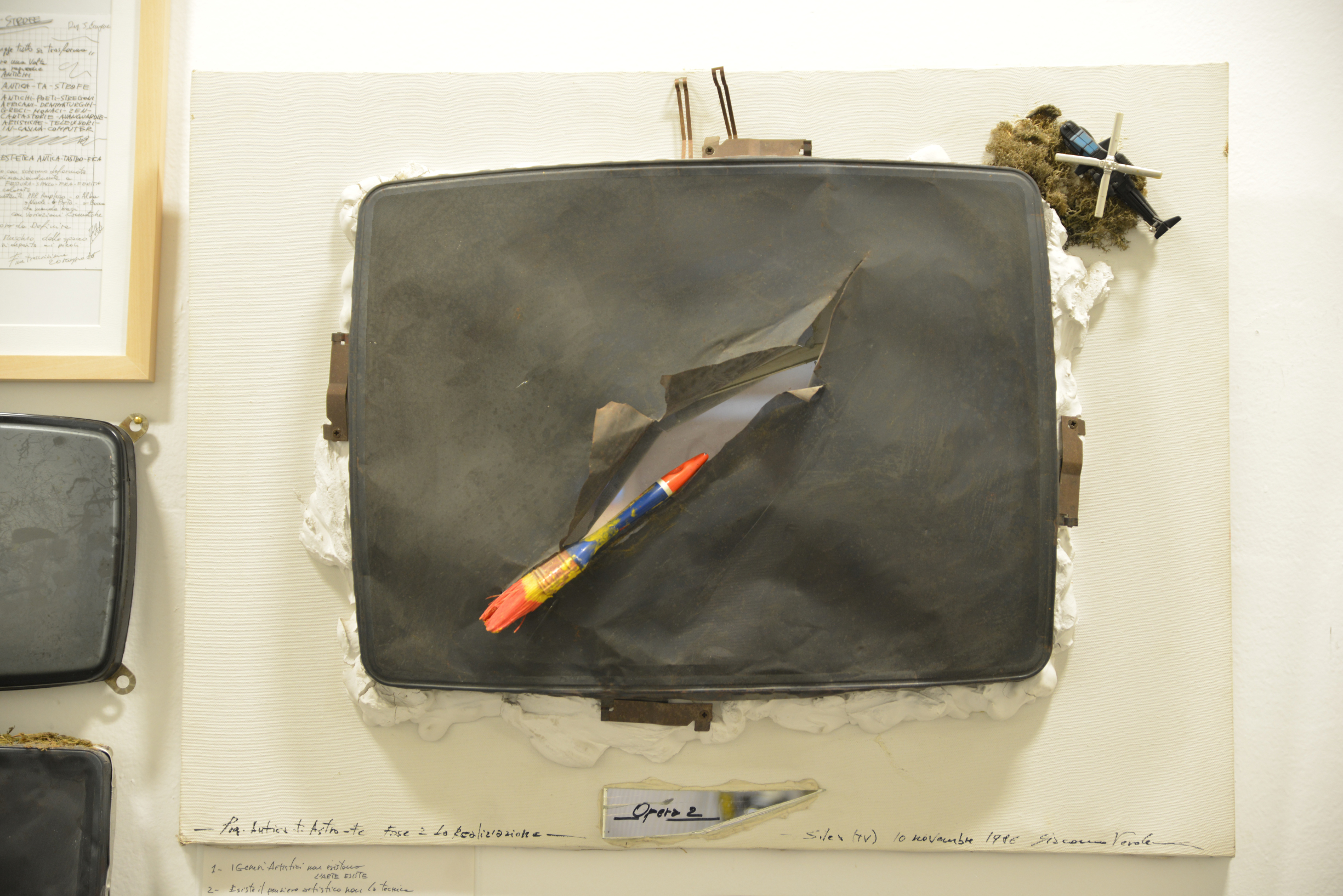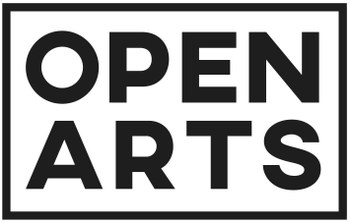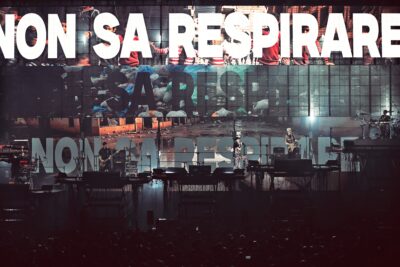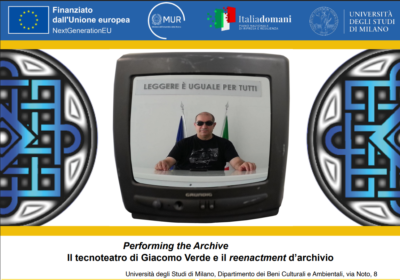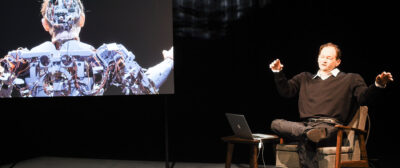DAMSLab, University of Bologna, January 20–22, 2021
International conference promoted by the Department of the Arts, Alma Mater Studiorum – University of Bologna, Universidad de Murcia and IULM University, Milan.
Open Arts is an international conference aimed at exploring new forms of circulation of the cultural heritage and the arts. These result on one side from the increasing interest of the film and media industry, and on the other from the employment of multimedia technologies and the Internet by artists, museum institutions and exhibition spaces. In this regard, specific attention is devoted to the strategies developed in response to the COVID crisis. For this first edition, we are looking for papers that offer a reflection on the new audiovisual forms of valorization, dissemination, and circulation of the cultural heritage and the visual and performing arts. Through their contributions, scholars, artists and media professionals will reflect on a range of audiovisual products and multimedia strategies, questioning both their content and their media dimension. The conference will be accompanied by a cycle of screenings and the publication of a volume.
Following a growing sensitivity towards the sustainability of cultural heritage, or the economic and social balance of the labor of all the subjects working to enhance artistic heritage, the visual and performing arts today – contrarily to the avant-gardes of the last century – have not sought legitimacy by distancing themselves from popular culture. On the contrary, between the search for sponsorship and the needs related to the support of tourism, arts education or art literacy, they remain closer than ever to the media industry in an attempt to reach a wider audience. Documentaries and biopics on contemporary art and artists, the cultural heritage, architecture and the performing arts, as well as new streaming services for artists’ films and videos, and the use of multimedia devices in museums: these are no longer seen as tools that invalidate the intellectual dimension of art, but as strategic components for its circulation and appreciation.
An increasingly diverse media scenario allows artists and cultural operators to experiment with new forms of research, knowledge, and uses of the arts without having to clash with the logic of mass entertainment. This promotes a democratization of art, which becomes an increasingly less elitist and more relevant area in public life. The recurring issues that emerge include the renewed position of the audience, the use of social media and interactive technological devices in exhibition spaces, and the opening of contemporary artistic practices to an increasingly widespread visual culture. For this first edition of the conference, particular attention will be paid to the various multimedia strategies developed by museum institutions and exhibition spaces during the emergency period of the COVID-19 pandemic in 2020, characterized by an acceleration of new forms of experience and knowledge in order to respect social distancing and domestic isolation.

Possible topics include, but are not limited to:
Documentaries and biopics on art and artists
Television programming about the arts
The use of multimedia to access and promote the cultural heritage
Streaming services for artists’ films and videos
The use of social media by artists, museum institutions and exhibition spaces
Collaborations between contemporary artists and the media industry
Multimedia strategies developed by museum institutions and exhibition spaces, during the COVID-19 pandemic
Proposals should include:
Name and affiliation of the proponent
Title of the proposed paper
Abstract (300 words maximum)
A short biography of the proponent (150 words maximum)
We are seeking for speakers from different scholarly fields such as art history, film studies, media studies, visual studies, museum studies, architecture, and the performing arts. To propose a paper for a 20 minute talk, please send an abstract of no more than 300 words and a short bio of 150 words in a single PDF no later than 30 September 2020 to m.cucco@unibo.it and francesco.spampinato@unibo.it
– Speakers will be notified by October 31st
– Presentations can be in English or Italian
Steering committee:
Joaquin Cànovas Belchì (Universidad de Murcia), Giacomo Manzoli (University of Bologna), Anna Rosellini (University of Bologna), Vincenzo Trione (IULM University, Milan).
Organizing committee:
José Javier Aliaga Cárceles (Universidad de Murcia), Marco Cucco (University of Bologna), Anna Luigia De Simone (IULM University, Milan), Francesco Spampinato (University of Bologna), with the collaboration of Giorgio Avezzù (University of Bologna), Elisa Mandelli (Link Campus University, Rome) and Edoardo Milan (University of Bologna).
